#this is tangentially newsies related
Explore tagged Tumblr posts
Text
I AM. LOSING MY MIND
#this is tangentially newsies related#more specifically Gabriel Damon related#MORE specifically 1997 lost media related#if anyone guesses you get THE BEST PRESENT EVER#I LITERALLY SCREAMED
4 notes
·
View notes
Text
Special interest level: I got very fascinated with sleeve garters and sleeve straps and reading about them because of Best Wishes! So, here's a post compiled of the results of reading a lot about things tangentially related to my special interests, ffff.
Sleeve garters are like what Cabernet (Burgundy) wears! Remember, Pokemon Connoisseurs are called Pokemon Sommeliers in the original, they're based on wine experts (hence comparing compatibility between trainers and their Pokemon with food-wine marriages, borrowing the same terms.)
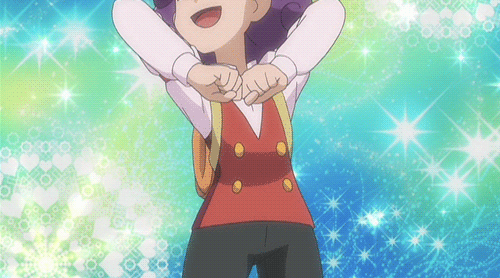
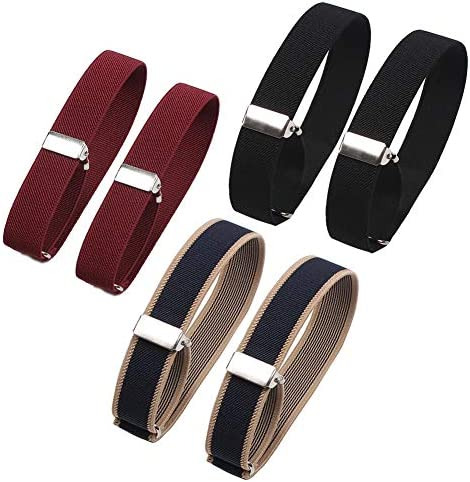
"A sleeve garter is a garter worn on the sleeve of a shirt. It came into wide use, especially in the US, in the latter half of the 19th century when men's ready-made shirts came in a single (extra long) sleeve length. Sleeve garters allow individuals to customize sleeve lengths and keep their cuffs from becoming soiled while working or at the correct length when worn under a jacket. (...) a century ago this item of clothing was something a man may have worn regardless of profession (with the possible exception of the wealthy or those too well-dressed to wear non-tailored shirts)..." (Wikipedia)
Bartenders (to keep sleeves clean) and poker/casino dealers (previously to show there's no room to hide anything up their sleeves, apparently!) still tend to wear these and, historically, typists, accountants, and anyone who works with inks and paints would wear them. Now, they mostly feature in historical fashion or period costumes.
Aside from the lapels on Trip's jacket (his hoodie's always in the way, so I can't figure out what kind of lapels, exactly, it could notched or shawl... but if you want to go by cheap cosplay meant for a goofy official variety show where the rivals get "drunk" on... tea??? I've never seen it but it sounds hilarious and reminds me of the TRio getting "drunk" on water in AG of dubious accuracy, it looks like a notched lapel!), his beta design's jacket also had sleeve straps and a breast pocket.
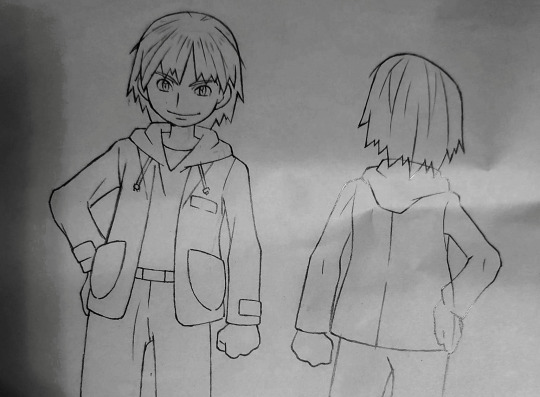
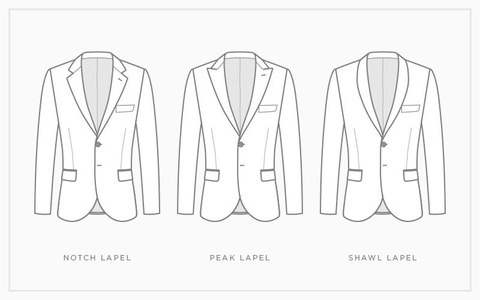
Sleeve straps are often only ornamental now (and in the beta design, no buttons are drawn, but that might've just been for easier animation), but their function was to draw the sleeve closer to the skin to keep the wind out and trap body heat if it's cold. Which fits, since we tend to assume the kid hates the cold because this kid's going on a journey in a suit jacket, hoodie, and undershirt in spring and summer?! ^^;;
His hoodie in the beta design also had drawstrings, which you rarely see in the anime (it's there in one shot in the Fushide episode!).
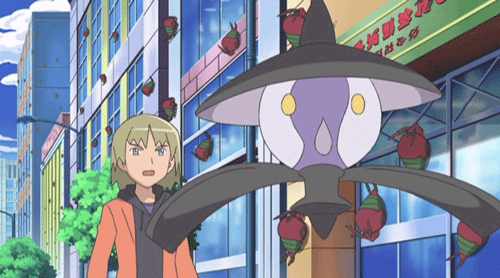
Tomboyish Georgia wears a yellow newsboy cap! (Think Newsies and Peaky Blinders.) I used to wear a wooly grey one in the winter, used to cover my ears with it and tuck all my hair into it, too! Didn't figure this one out on my own, @pkmncoordinators pointed it out. ^^
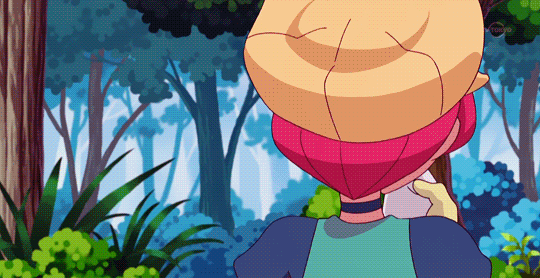
While mostly associated with the working class, men and boys of all classes wore them, they were very common in the 1920's, although the wealthy typically only wore them while golfing or doing other leisurely activities.
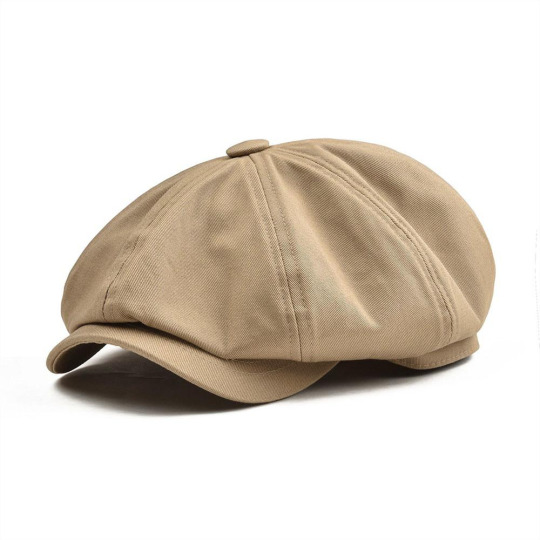
Georgia's hat appears to be modelled on an 8 panel newsboy cap. ^^
#pokeani#Pokemon Best Wishes#trainer Georgia#Pokemon Trip#trainer Burgundy#trainer Trip#vintage fashion#these kids wear some bright clothes but also have so much undeniable STYLE... vintage aficionados I guess???#BW! rivals#are so dapper#Pokemon#long post#gif#Trip#Shootie#Shooti#Shuuti#Langley#Georgia#Cabernet#Burgundy#Lampent#Lampler
39 notes
·
View notes
Note
g, o, u, y? :3
G - Have you ever had an OTP? If so, do you remember your first one? Who was in it?
it's been a very long time, but a shot in the dark guess is almost certainly something from warriors lol; probably swiftpaw/brightpaw? angst enjoyer from day 1 ahaha
O - Choose a song at random. Which ship or character does it remind you of?
i put my liked songs on shuffle and got halloween party by drumming bird. i think this reminds me of mattkey because of the line "the only thing that scares me now is the goodbyes, and i think about yours a lot", à la the s1 scene where mike visits matt (and himself lol) in matt's apartment? don't exactly have the most concrete reasoning but its true in my heart (and everything ever can be about mattkey /lh)
U - Three favorite characters from three different fandoms, and why they're your favorites.
i'm going to try and pick non-obvious characters for this lol. i contain multitudes and all that
johnny cade from the outsiders: his skittish vulnerability amidst the stereotypical "rough-and-tumble" attitudes of the other greasers was always incredibly relatable to me, + the fact that, despite his hesitations, still bit when he was cornered & needed a way out of the danger.
jojo from newsies!: okay technically this feels a little bit like cheating because he's really just a named ensemble role, but he canonically was raised by nuns and i think the potential of exploring his religious trauma whilst recognizing, for a long time, the church/religion was all he had (before the newsies) is incredibly intriguing + relatable lol
matt woe.begone: okay this one is definitely cheating and i broke my own rule but i've projected on this guy so much he's basically me lol and deserves a place on the list. as i mentioned earlier, the s1 apartment scene with mike basically ruined my life /pos; his actions are so far from being self-preserving while he still maintains a level of fight, and the two don't really make sense in tandem? overall throughout the podcast when we see him he wants to be in the middle of the trouble yet logistically isn't in any position to actually do so lol. i love him
Y - What are your secondhand fandoms (i.e., fandoms you aren't in personally but are tangentially familiar with because your friends/people on your dash are in them)?
i think the main ones are probably baldur's gate 3, les mis, and ofmd
4 notes
·
View notes
Note
Your views on calamity jane are the only correct ones Ive seen do far. It's ahead of its time.
Thanks 😅
Listen, Calamity Jane was among one of my first musicals and like, I grew up on mostly musicals and it took a while to have my brain recognize it but hell if Canary and Katie wouldn't have been happier together. Or if Christine had simply dotted more on Meg and not cared about either Roule or the Phantom. Or Sandy and Frenchie. Danny and Kenickie. Don't even get me started on the precious premutations and ships among the Newsies, like, I love Katherine and Sarah equally but they didnt need to be there when Jack had Davey, Crutchie, Racetrack, or Spot. And you can't tell me Cosmo Brown and Don Lockwood weren't perfect together, with or without Cathy Seldon added in. Or Bob Wallace and Phil Davis before they met the Haynes sisters. That Professor Henry Higgins, Colonel Hugh Pickering and Eliza Doolittle didnt have the most perfect queer platonic set up. That so much of the RENT family coulda just been a happy polycule together in their found family house amd I dont legitimately believe that if they existed for more than the play/movie that Mark, Roger and Collins didn't get together at some point or another. Magenta and Columbia: totally should have been together. Elphaba and Glenda! Like, yes the book makes a bigger deal of Fiyero than even the musical did but STILL!!! Listen to the song "Loathing" and tell me its not the backing track to an enemies to lovers fic.
Going older school: that Hermia, Helena Lysander, and Demetrius wouldn't have been happier if the boys had just kissed, the girls had just loved each other and the 4 of them would have just fucked off to the country after being pixie led.
Going a little more "recent": Ryan and Chad, Penny and Tracy, Hamilton and Burr. Like, I know I know I know, it's the age old joke that theater/theatre is so gay but, in a world where singing and dancing just happens, why not have happier love story endings not defined by societal expectations of the "correct way to be" in relationships!
On a side note from my ramble and tangentially related to Midsummer's Nights Dream: Were The World Mine is an excellent gay retelling with some FANTASTIC music in it
#tori bean's sharing#tori Bean's rambling#ranting?#musical discussion#also: Were The World Mine is the movie that helped me start exploring and labeling my sexuality. heteroflexible:straight but shit happens.
3 notes
·
View notes
Note
Does Chris get hyperfixations? Do they ever involve things he wants? I’m currently hyperfixating on tortoises and I REALLY Want a pet tortoise and just imagining Chris begging Jake for a bird or something.-@outofangband
(For anyone concerned even though my hyperfixations last different amounts of time they’re usually things I either already like and/or will continue to like after it’s passed so even if I get my tortoise and the hyperfixation ends it will still be very loved and valued)
Musicals are a hyperfixation for a while that remains a special interest! My headcanon (wait, I think it's just canon if I come up with it) is that Chris is shown Newsies by Nat who has a copy of it lying around, gets hyperfixated on musicals, and just starts consuming them nonstop.
It leads to his eventual interest in stagecraft and technical stage design, which is why he ends up majoring in stage design in college.
I've mentioned before that Chris usually has his music going everywhere he goes, and mostly he is walking around campus bopping to musical soundtracks.
He also falls headfirst into Minecraft, that's canon now, and basically disappears into the game for a while.
This came up in a Discord server and is tangentially related, but: while Chris would hyperfixate and get really into video games in general, games where there's a plot or conceit about identity would be really fucked up for him. Among Us, for instance, with "imposters" that have to be hunted and shunned by the other players, would fuck him up really badly.
So would a game like Bioshock, where the twist undoes your entire understanding of your character's identity before that point.
Anything like that - you are not what/who you think you are, or SOMEONE IS NOT WHO YOU THINK and must be rejected, would be really really unsettling and upsetting for him.
25 notes
·
View notes
Note
Soooo how was the Newsies viewing?
Surprisingly, the boys had few quarrels with it. Some jokes were had over 'Oh hey that's the American Psycho guy' which got coupled with Danny making a comment about how our initial dynamic was in some regards similar to Jack & Les. Which I'm opting to assume is correct since his recollections of that era are much clearer for him. The curse of creating defining memories I s'pose.
Personally enjoyed the choreography. Mutual wondering about how those from the actual newspaper strike would feel about the musical was had - which prompted a rather significant tangent conversation to be had (requiring the pausing of the movie and rewinding) over how we would feel with having musicals based on some of our prior actions. Then what we thought those actions would be. Which turned into Danny & I trying to think of any occasions where they might of tangentially occurred to us. The answer is probably yes. He's had ghost hunters looking for 'Fish' before so there is that.
Jack complying with Pulitzer to avoid having his friends thrown to the refuge was a relatable, as was the subsequent backlash from the boys. The later using of Pulitzer's old printing press was a great move. Loved that.
I approve of the efforts they put into the costumes.
We all agree that the roads were not filthy enough for 1899.
The introduction scene with the communal sleeping quarters was also not dirty enough and we had a bit of a laugh about 'can you remember how those sorts of places used to smell?' Not pleasant.
We did have a bit of a laugh at the New York accents.
I apparently remind the boys also of Spot and now have the lingering threat of a nickname being held over my head. If they ever force me to yell 'Auckland' holding a cane in the air like in that final big strike scene where he enters yelling 'Brooklyn' I am blaming you and you alone anon.
1 note
·
View note
Text
4 Lessons From a 4-Week Social Media Fast

The cost of a thing is the amount of what I will call life which is required to be exchanged for it, immediately or in the long run. —Thoreau
February 4, 2019
Dinner was mostly cleared from the table, but there were still a few random dishes out, and stray crumbs on the floor from the kids. Cleanup was 90% done, and I was tackling that last 10% in a slow, unhurried manner. As I was at the sink, I heard a giggle or two from the kids, who were playing in the living room. Then those giggles grew into full-on belly laughs, and my wife’s laughter joined the chorus.
I smiled, instinctively, at the noise.
As a parent, noise of any kind is often the last thing you want. Silence — the complete lack of commotion — is a kind of beautiful non-music to our ears.
And yet, to hear my family laughing together on the floor . . . that was truly an enchanting sound.
So I turned around to get a look at the action. My 3-year-old son had piled some pillows on the floor, and he and my 11-month-old daughter were taking turns gleefully throwing themselves onto this fluffy mountain. As soon as my wife laid down on those pillows, she became part of the landscape upon which the kids wrestled and rolled. The sublime, joyous, unforced laughter continued.
And so I just stood there in the kitchen, for a few full minutes at least, taking it all in, the Lumineers providing a movie-like soundtrack for the scene. I know that doesn’t seem long, but in the moment it felt like a rapturous eternity. I simply soaked it in and tried as hard as I could to absorb every detail; I immediately knew this was a moment I’d never want to forget. This is the stuff that life, and parenting, is made of.
After my wife caught me looking, I told her that if I had a heart-o-meter, it would have nuclear exploded.
____________________
This particular evening took place a few days after my social media fast ended.
Before giving up social media for the month of January, I’d spend maybe an hour on it a day, mostly in 5 minute snatches of time scattered through my waking hours — quick work breaks, waiting in lines, while watching TV at night, etc. I wasn’t “addicted” to social media; I mostly used it as a boredom killer and to entertain myself at night when the kids were in bed. (Late night comedy clips are one of my weaknesses.) I would also spend probably another hour or so dinking around on news apps, sports apps, games, etc.
After dinner, while the kids usually play for a little bit before bed, was a common time for me to pick up the phone and fool around a bit. I could peruse social media, check sports scores, see what sort of new idiocy Washington, DC was ginning up. I wasn’t necessarily neglecting my family; if the kids called my name or needed their dad’s attention for a minute, I’d easily put the device away and join the rumpus. But then I’d go back to the phone and putter around some more. I wasn’t fully absorbed in either activity; it was more of a scattered presence that didn’t feel fully in the moment to be sure, but also didn’t feel particularly nefarious. It wasn’t like I was holed away in a corner of the house or zombied out on the couch, oblivious to what was happening.
And yet I have to wonder how many perfect moments — like the one described above — I missed out on being fully present for. It was quite a sobering thought, to say the very least.
After deciding to spend 31 days off of social media (and other time-wasting apps, too), and realizing the immense benefits of curtailing my tech use, I’m fully in the camp of what Cal Newport calls the “Attention Resistance.”
During those 31 days I kept a weekly journal about how the fast was going, and a lesson I took from that particular week.
While my own insights aren’t prescriptive in nature and won’t apply to everyone in the same ways, I do think they are rather instructive as to what can happen when you radically change your social media and smartphone use.
Week 1: Realizing Social Media’s Habitual Nature
During the late evening hours of New Year’s Eve 2018, after the kids were in bed, I took some time to make a few final scrolls through Facebook, Instagram, and Twitter. I didn’t mention or post that I was taking January off; I wanted to disappear in silence.
And that’s what I did. I deleted the Facebook app. I deleted the Instagram app. I logged out from all accounts on my phone’s browser (which was where most of the Twitter damage was done).
I went to bed at 10pm, truly looking forward to starting 2019 on a social media-less foot.
So, naturally, the 10-month-old baby woke up screaming at about 11:30pm, and wouldn’t go back to sleep until about 1:30am. I didn’t intend to ring in the new year on a conscious level, and yet there I was, rocking a baby to sleep when the clock struck midnight. I’ll admit that my first instinct was to check Facebook. Or Instagram. Anything. I didn’t even want to, really. Just my rebellious human nature coming through there. But I held fast and just closed my eyes.
And so that first temptation passed without incident.
____________________
In the days that followed during week 1, I wanted to check in on my accounts to see how friends and family had rung in the new year. Instead, I texted a few close friends and had nice “conversations” that way. Much better than scrolling through a feed and not interacting at all — which is generally what happens.
The most interesting thing about this first week was what not having those apps on my phone did to those habitual boredom-busting tactics. Normally, I’d unlock my phone, and almost instinctively tap on the blue “f” or the purplish camera icon, just to see if any notifications came in, or if anyone in my network had some major life event.
Now, I’d unlock my phone and just sort of stare at it, not really sure what to do. Eventually, I’d click around on various apps — weather, games, Amazon (shopping, not reading) — and quickly get bored and shut ‘er down.
On social media, you don’t have to make any decisions about what to do. The infinite scroll keeps you engaged for . . . well, ever. When you open a weather app, you check the weather for about 10 seconds, and that’s it. When you shop online, you have to intentionally look for something; endlessly clicking on related products gets old pretty quickly. Without those infinite scrolls beckoning for your attention, you realize that your phone isn’t such an alluring device. It’s just a little brick that’s supposed to make your life easier; it’s not supposed to enslave your attention.
(Games of course offer plenty of time-wasting opportunity, but something about being 30 has made me sort of cringe at myself when I play games on my phone, so it doesn’t happen too much, and I in fact just recently deleted the last of those games. I’m a grown man for crying out loud!)
The Lesson: This first insight is in truly learning that social media is much more of a mindless habit — and a very strongly ingrained one — than a pleasurable or fulfilling activity. We do it out of compulsion rather than intention.
Week 2: Missing the Benefits of Social Media
Week 2 started as a breeze, really. To be honest, I had been turned off by social media for a while, and it felt pretty easy to step away from it. To my mind, this meant I was actually quite ready for a break and just needed an excuse to do it. Perhaps that’s all you need too — an excuse to cut it out of your life.
The reality of the world we live in means that I wasn’t actually missing much. My wife would text or email me memes, which was almost more of a fun and personal way to encounter them. Hangouts with friends would inevitably bring up newsy topics that I hadn’t really been privy to. And sometimes, things just fully slipped over my head and turned out to be entirely unimportant. (I had no awareness of that Gillette ad and the mushroom of reaction it caused until, like all flash-in-the-pan sparks of outrage, it had almost completely disappeared from the pop culture spotlight, leaving nothing of real significance behind.) It was nice to run into these things tangentially in the course of conversation rather than having spent hours online.
But then, I ran into a few instances where being on social media — particularly Facebook — would actually have been beneficial.
One morning I was texting with a good friend about biscuits and gravy. Weird, I know, so a little bit of context: I was having some at home, and back in our college days this friend and I would have boatloads of the stuff together. Little did I know that his daughter was actually in the ICU at that very moment. Had I been on social media, I would have known, and I wouldn’t have texted about biscuits and gravy. I only knew about the sick daughter because my wife said something, and I ended up feeling like a bit of a cad (though it is possible he welcomed the silly distraction). I then of course texted him that we were thinking about their family and would do anything we could to help; I also called after realizing that texting wasn’t quite the right medium for conveying those thoughts.
In a similar narrative, I had a different friend from college with a young son who’d been dealing with cancer for much of 2018. Ten years out of college, we weren’t close enough to be on texting or calling terms, but I was certainly interested in what was going on with his family. Without being on social media, I was missing those updates on how he and his kid were doing. (The little guy is now doing very well and pretty much has a clean bill of health!)
Facebook, for the enormous unethical cesspool that it is, actually provides some benefit to my life; it’s not fully just mindless entertainment. I can keep up with people who are important to me without having to send a dozen “Hey what’s going on?” texts. If you cull your friends list to just those you truly care about (rather than those you barely know or people you only follow because you sort of like to hate their posts), you’ll end up with a newsfeed that provides some value.
The real trick with social media is actually weighing those benefits vs. the costs. Before my fast, the amount of time spent on Facebook was not in line with what I was getting out of it. My time on Twitter and Instagram were in the same boat. I was spending too much life — in Thoreau’s words — on the minuscule benefit I was getting. So after the fast, as I’ll dig into a little later, I ditched Twitter completely and reduced my time on Instagram and Facebook to better match the benefit they were providing.
The Lesson: Social media does have actual benefits; it takes a break, though, to realize what they are. Once you’ve had a break, and found some of those real benefits, you can go back to it in a far healthier, and assuredly less time-consuming way. After my fast, I quickly came to realize I could legitimately keep up with the more significant updates my friends’ and family post on social media in just 10-15 minutes per week.
Week 3: Dealing With Boredom
The novelty of the fast was quickly wearing off by week 3. I was finding myself more often in the throes of boredom. At first, the fast was kind of exciting — almost a self-righteous feeling of knowing I wasn’t wasting my life on scrolling. But by week 3 that feeling was waning. I noticed it mostly while waiting — waiting in line anywhere, waiting for my young son to finish going to the bathroom, waiting 5 minutes for my pour over to finish up at the coffee shop, waiting at Walmart for a tire to be patched (I forgot to bring reading material), waiting for the gas tank to fill up . . .
These small bits of time began to feel excruciatingly long — embarrassingly so, actually. What did it say about me, I wondered, that I get achingly bored after just a couple minutes with nothing to do?
I quickly realized that life offers plenty of waiting, and social media is seemingly the perfect antidote — which is why those companies are some of the world’s most valuable. There’s always something new and it doesn’t take any of what I call “ramping up” to get into. (With reading, for example, it can take a few minutes to get into the flow of it, but many times the wait you’re in the midst of only lasts that long.) Social media can be accessed and de-accessed in mere seconds, and the result is no boredom ever again. In theory, at least. Of course you still get bored with your feeds, you just don’t realize it, because you keep on mindlessly scrolling.
The problem is that boredom can actually be good for you. It fosters thinking. Real thinking. With your brain! What a novel idea. I know that sounds silly, but it really is a bit unique in our world. Instead of diverting to social media with every minute that doesn’t have an allocated activity, I’ve learned to try to actively be thinking about something — planning my day/week, thinking through a decision that needs to be made, “writing” in my head and working out ideas, or even just plain zoning out. While I’m still bored when waiting around in line, and it’s still sometimes a little painful, I’ve come to embrace it as best I can. And my mind truly feels more focused — less scattered and more on top of things — because of it.
The Lesson: Embrace the boredom. Use it to think about something. Or not. It may be painful, but your brain will thank you. If nothing else, keeping your phone put away while waiting for stuff will break the hold that your phone has over your every spare moment (and those spare moments are dang valuable — if used intentionally).
Week 4: A New Philosophy of Social Media & General Phone Use
As my experiment was coming to a close, I started to think seriously about how to let social media back into my life. Cal Newport accurately writes in Digital Minimalism that as consumers we just sort of slid into using these services and apps. They seemed to offer some benefit and some entertainment, so there wasn’t a need to be all that thoughtful and intentional about their use. But now, a decade or so after their introduction, we’ve seen how much time and attention those devices and services can take from us. It’s time to step back and think critically about the role they should play in our lives — to develop a real philosophy around our use of technology.
Newport argues for putting pretty stringent “rules” in place for yourself when it comes to social media and device usage. Make them as specific and in-depth as is necessary — setting time limits on things and limiting your access (with other apps, like Freedom, if needed). The small caveat is that if you’re naturally pretty disciplined about this stuff, you may not need to be as specific. This is the case with me; after making a living on the internet for the last 6 years, I’ve had ample practice in self-discipline in that particular realm. So my own rules didn’t need to be so hard and fast, but yours very well may.
What I came up with:
1. I would reinstall Instagram on my phone, but only use it to post pics 1-2 times per week (of books I’m reading, some of my baking creations, and weekend hikes). For me, it provides hiking/cooking inspiration and some beneficial personal branding without the vitriol found on Twitter and Facebook. I really wish Instagram was easier to post to from a laptop/desktop, but oh well. I’d spend no more than a few minutes every 2-3 days scrolling.
2. I would not reinstall Facebook on my phone. I’d use it only on my computer, for no more than a few minutes every other day. When I see something I want to “like” or comment on, I’ll shoot a text or an email instead. I want social media to be a supplement for my social interactions, not a replacement. I’ll occasionally post pics of the kids, because that’s what my family and close friends most like to see. (I do also really enjoy using the “On This Day” feature, which provides a nice dose of nostalgia from pics you posted on that day in years past.)
3. I would abandon Twitter altogether. It was clear during my fast that I received no actual benefit from it, other than stress- and eye-roll-inducing news items. I also came to realize that things that seemed important on Twitter — from “news” to overwrought outrage at various things — weren’t actually important at all in the real world.
4. I would buy a cheap smartwatch to give me notifications of texts and work emails. I’d always been mostly in the hater camp when it comes to smartwatches, so this came as a surprise even to me, but as I thought about it more, it made more and more sense. Part of my checking my phone so much was to see texts and important work emails that came through. My wife works in health care, and we like to text throughout the day when we can, and she often only has a few spare minutes at a time. So it’s important to me to see things from her right when they come in. Same goes for the occasional work email that requires immediate attention. That doesn’t happen too often, but when it does, I want to be on my toes. So, I ended up checking my phone a lot just to see if there were new texts or emails, which more often than not led to other time-wasting activities. In getting a cheap smartwatch that gives my wrist a little vibration on incoming texts and work emails, I can know within a second or two if something needs attention and if I need to reach for my phone or not. Pretty dang handy, actually.
The Lesson: Take the time to really think about your philosophy — and even specific rules — about your social media and smartphone usage.
Concluding Thoughts
My month off of social media was far more insightful than I thought it would be. After being away for 4 weeks, it oddly felt like it would be more work to jump fully back into the fray and keep up with what was going on. It sounded exhausting, actually. I’m now far more intent on using my phone for thoughtful, purposeful actions rather than letting it control how I use my time.
A month after coming up with the rules above, I can emphatically say it’s all worked without a hitch. I actually now just naturally get bored after more than a couple minutes on Facebook and Instagram every few days — a result that many of the social media fasters profiled in Digital Minimalism experienced as well. I know that sounds sort of holier-than-thou, but it’s the honest-to-goodness truth. And the smartwatch has been surprisingly useful; I’m not reaching for my phone nearly as much, so my overall usage of it has gone down drastically (to less than half of what it was before, according to Apple’s Screen Time app). It’s made a significant, appreciable difference in my life.
Everyone uses (and perhaps struggles with) social media and phone usage in different ways. While I think everyone should take a social media fast — of at least 30 days — what you find out about yourself and your digital consumption will vary from my own results. My lessons were very much individual to me; whether or not they relate to you will depend on your own social media habits, and the particular parts of it you’d like to see change.
The whole point is that I wouldn’t have learned any of this stuff without that fast. So the only prescriptive part of this article is to implore you to take your own 30-day break from social media and other time-wasting apps. As Newport argues, it’s only in temporarily wiping the slate clean, that you can figure out what really matters and what’s really important when it comes to your devices and apps. Then you can truly know what you want to re-introduce into your life, and be able to use what you do bring back in an intentional, fully conscious, life-enhancing-rather-than-life-squandering way.
Related Resources and Further Reading
Decluttering Your Digital Life
The Complete Guide to Breaking Your Smartphone Habit
5 Concrete Ways to Develop a Healthier Relationship With Your Phone
How and Why to Take a Tech Sabbath
What Makes Your Phone So Addictive & How to Take Back Your Life
The post 4 Lessons From a 4-Week Social Media Fast appeared first on The Art of Manliness.
4 Lessons From a 4-Week Social Media Fast published first on https://mensproblem.tumblr.com
0 notes
Text
this is only tangentially related to falsettos but...
...since I kinda called Anthony being cast as Jason last year in my Newsies blog and I want to test my psychic casting skills...
I’m gonna go out on a limb and say that Betsy Wolfe is gonna be the next long-term Jenna in Waitress after Sara Bareilles leaves.
19 notes
·
View notes